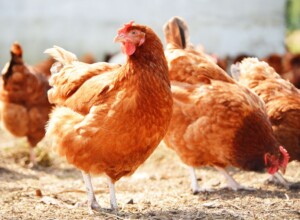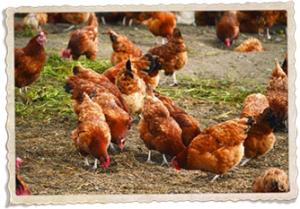 As our chickens age, they slow down and gradually stop producing eggs. But that doesn’t mean we don’t still love them. We want to take good care of them but caring for aging chickens is much different than caring for younger ones. After all, senior chickens face more health challenges, ailments, and they require different nutrients to remain healthy.
As our chickens age, they slow down and gradually stop producing eggs. But that doesn’t mean we don’t still love them. We want to take good care of them but caring for aging chickens is much different than caring for younger ones. After all, senior chickens face more health challenges, ailments, and they require different nutrients to remain healthy.
If your chickens are getting up in years, then read over these tips to help care for aging chickens:
Common Ailments in Older Chickens
When humans age, we have to deal with many common ailments like heart disease, arthritis, and more. It’s similar for chickens. Senior chickens can suffer from several issues and ailments. As such, it’s important to keep an eye out as your chickens age.
Here are some of the most common ailments found in older chickens:
- Weight issues
- Eggbinding
- Egg peritonitis
- Internal laying
- Parasites
- Prolapse
- Arthritis
- Mobility issues
Change their Diet
Chicken retirees shouldn’t be eating the same feed as the young bucks. They’re not laying eggs anymore (or at least, not as many), so they need less calcium. Additionally, many aging chickens have difficulty pecking, making it harder to eat their food. And since older chickens are more susceptible to weight loss or weight gain, it’s more important than ever to watch their diet.
Low protein and low calcium diet
An elder chicken’s food should contain low amounts of protein and low amounts of calcium. After all, they’re not producing eggs anymore, so they need less protein and calcium than they used to. Eat too much protein and calcium, and your chickens could develop Gout, a dangerous and potentially deadly disease.
Transition to a “maintenance” or “all flock” food
“Maintenance” or “all flock” foods are low in calcium and have fewer nutrient supplements. As such, they’re good options for chickens who are no longer laying eggs and need less calcium than they once did.
Feed your older chickens in another area
If you have a mix of older and younger chickens, then feed those chickens in separate areas. You don’t want your older chickens getting into your younger chickens’ feed, or vice versa.
Make their Living Space Accessible
Just like humans, chickens become less agile as they age. They won’t be able to reach the places they once could. To make their lives easier, go around your coop, run, and pasture to ensure that everything is accessible to your aging chickens. Here are some places you can start with:
- Lower the roosting perch by one to two feet
- Wrap perches in vet wrap to make it easier to grip
- Switch from long-fibered straw to wood shavings or short fiber straws
- Install rubber mat flooring for added cushioning
- Create a gentle ramp leading into the coop
Should you have a separate living space for your aging chickens?
It’s a question that many poultry owners wrestle with: should your aging chickens have their own living space? While older and younger chickens can coexist, it’s best for aging chickens to have their own coops. Another coop will make it easier for you to separate the food, but it will also prevent bullying. Younger chickens tend to bully older chickens. So, give your seniors the peaceful retirement they deserve by setting up their own living space.
Pro Tip: Chickens can get lonely. If you have only one or two elder chickens, make sure they can still interact with the rest of the flock by giving them access to the run and pasture.
To learn more on how to care for your aging chickens, read through our blog or contact Chickens for Backyards today.

